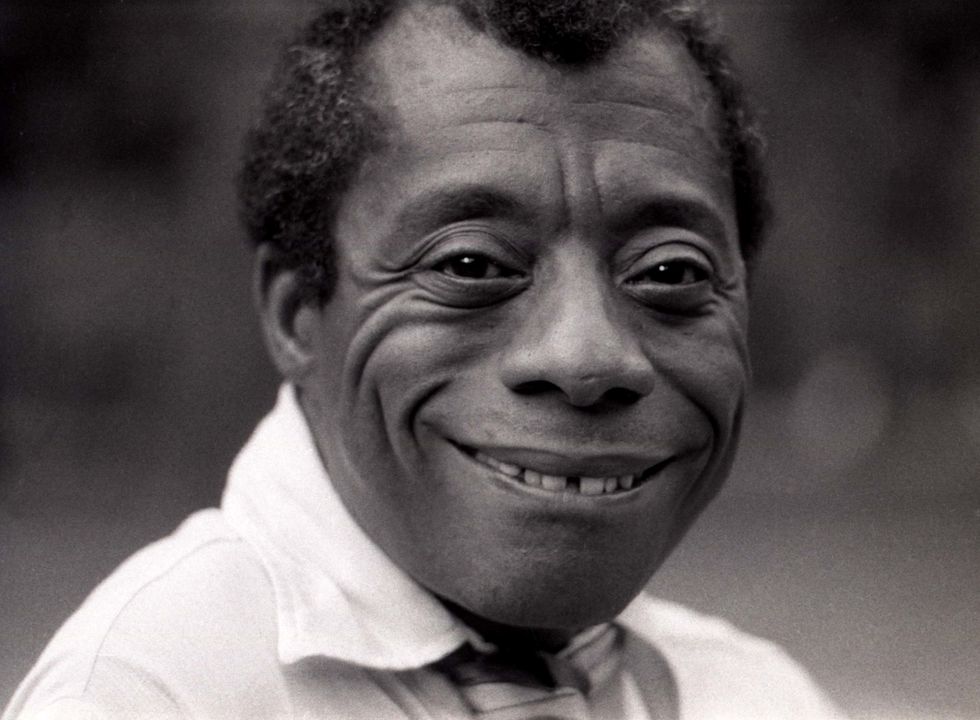At the height of the roaring twenties, and the Harlem Renaissance, James Baldwin emerged on the literary scene, and along with his fellow contemporaries Ralph Ellison, Langston Hughes, and Zora Neale Hurston, helped re-inject into the canon of American Literature, the discussion, and question concerning where the African-American community stood in American Culture, even going as far as to explore whether such a people so marginalized at time even had a place. But more significantly, as a bisexual, Baldwin also cemented himself as an icon among those in the LGBTQ circles, whom, much like their African-American peers, believed they had been silenced by the white noise that was, and even today, still is American Society.
Able to capture with unparalleled compassion, and conviction, his personal struggles that have been the struggles of so many marginalized for the color of their skin and sexuality within the body of his literature, James Baldwin's unblemished legacy continues to resound across time. Inspiring not only a whole generation of renowned writers, artists, and leaders in the likes of Toni Morrison, Elia Kazan, Allen Ginsburg, Martin Luther King Jr., Chinua Achebe, and Lee Strasberg to name just a few but inspiring the art that is being. Being yourself that is the art which distinguishes you from others. But also establishes your dignity as one who is a human being among those trying to be human.
1. “You think your pain and your heartbreak are unprecedented in the history of the world, but then you read.”
Everyone's challenges and setbacks always seem unique and outstanding when they occur, but against the tragedy that has befallen the world, our perceived personal atrocities pale in comparison to the pain that has been caused.
2. “Children have never been very good at listening to their elders, but they have never failed to imitate them.”
Its simply not enough to hate the mistakes those before we have made. It is the willingness to listen and to learn from them, even as we listen to learn from our own mistakes, that prevents us from repeating tomorrow what was done yesterday.
3. "People are trapped in history and history is trapped in them."
Whether we like it, we are part of history, and it, part of us. Whatever we do, whether it ends up on television or winds up as a program that disappears as fast as the change of the channel, our actions sow and bear the fruits of consequence upon the community in which we dwell, and live. Effecting who those around us will dwell and live. Whether it's for a second, a minute, an hour, or for many years to come.
4. "Love takes off masks that we fear we cannot live without and know we cannot live within."
Love. It's beautiful, but scary too. It's scary because our fears are what it directly targets. Demanding of us to forsake all we know, and all we cherish, which have been the fears. That we have come to know, and come to cherish.
5. "Not everything that is faced can be changed, but nothing can be changed until it is faced."
You don't always win, and you don't always conquer. No matter how much, and how hard you are willing to battle your greatest challenges and your greatest travails. Yet, in order to triumph, to conquer and seize the mantle of greatness from your challenges and travails, such an outcome is only made possible when you have the will. To battle hard, and to keep battling after.
A voice for the ostracized, the unheard, the unheeded, and the forgotten, James Baldwin forever remains that voice. The voice that spoke, and in doing so, spoke to so many. Leaving behind for them a voice to use. To speak. To be remembered. To be regarded. To be heard. To be accepted, and to receive acceptance for being like so many have sought, and continue to be.
- Giovanni's Room : NPR ›
- Giovanni's Room ›
- Why James Baldwin's 'Giovanni's Room' Is a Must-Read for Queer ... ›
- James Baldwin's Giovanni's Room: an antidote to shame | Books ... ›
- The Unsparing Confessions of ''Giovanni's Room'' | The New Yorker ›
- James Baldwin | Poetry Foundation ›
- Paris Review - James Baldwin, The Art of Fiction No. 78 ›
- Letter from a Region in My Mind, by James Baldwin | The New Yorker ›

















